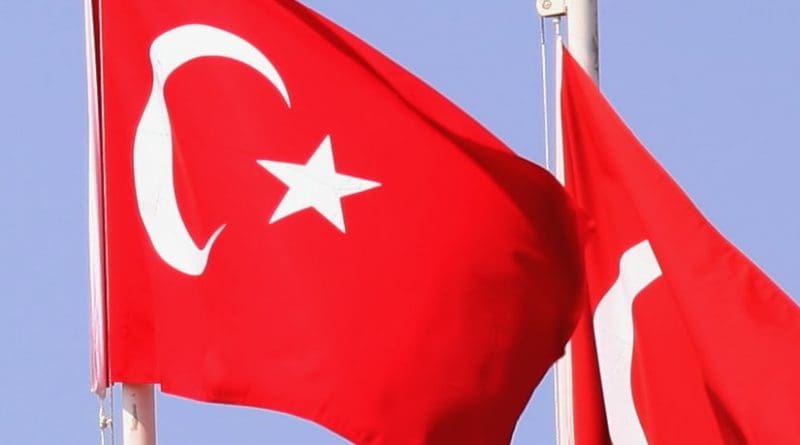Lobbyists In US Play Key Role In Turkish-American Relations – OpEd
By Arab News
By Sinem Cengiz*
The US political system enables pressure groups and lobbies to access the policymaking process and exert their influence on foreign policy. Through their activities, these groups aim to become powerful political players. In this regard, four major lobbies — namely Armenian, Greek, Jewish and Turkish — play a significant role in shaping Turkish-American relations. Despite them pursuing different agendas, these four lobbies have one common goal: To protect the interests of their homeland by getting the US on their side.
Since Turkey has recently engaged in a reconciliation process with both Israel and Armenia, the position of the Jewish and Armenian lobbies in the US has been questioned. During a recent panel on Turkish-American relations organized by a prominent Turkish university, I raised this question with one of the panelists: Prof. Kemal Kirisci, a non-resident fellow at Brookings and an expert on Ankara-Washington ties. He closely follows the activities of these lobbies. Kirisci said the influence of these lobbies had significantly declined and this was due to several reasons related to Turkey’s relations both with its previous foes and with Washington.
Before touching on how these lobbies gained their considerable influence on Turkish-American relations, it is important to briefly explain their agendas and relations with Ankara. Countries interested in the political decision-making process in the US and which seek to influence Congress or the White House achieve their goals mainly through lobbying. In this regard, the Armenian, Greek and Jewish lobbies pay particularly close attention.
The Armenian lobby’s attention is concentrated on the issues concerning Turkey and Azerbaijan. It used to actively affect US politics and even caused the tension in Turkish-American relations seen in the 1980s.
The Greek lobby focuses on issues in Turkish-Greek relations, such as the Aegean Sea continental shelf dispute and the Cyprus conflict. Since the 1980s, the Greek lobby has also been actively lobbying against US arms sales to Turkey. Since both Athens and Ankara are NATO members, giving them geostrategic value in the eyes of US policymakers, their lobbying activities receive a great deal of attention. The Turkish lobby is a relative latecomer to the US arena and therefore is lacking some experience.
In recent decades, there has been considerable cooperation between the Greek and Armenian lobbies in the US. This is not only due to their common concerns related to Turkey, but also their shared adherence to the Orthodox Church. These two lobbies have turned into important allies in the US political arena.
The Jewish lobby groups, which have been supportive of Turkish interests in the US, especially by adopting a pro-Ankara position on the issue of the Turkish-Armenian conflict, traditionally countered the Greek-Armenian alliance.
However, this situation started to change following the deterioration of Turkish-Israeli relations after 2009. The support of Israeli lobbies dramatically declined as a result of the Mavi Marmara incident in May 2010, when Israeli commandos attacked a flotilla carrying humanitarian aid for Gaza, killing nine people. This incident and subsequent developments not only strained Ankara-Tel Aviv relations, but also incited the Israeli lobby in the US to act against Turkey’s interests.
This situation automatically paved the way for the Greek and Armenian lobbies to have the upper hand and exert further influence on US politics. One of the most significant examples of this was in 2010, when the Jewish groups stepped back from actively lobbying against a congressional resolution declaring the events of 1915 as genocide. The tragic events that led to the deaths of hundreds of thousands of Armenians are a greatly controversial matter for Ankara and Yerevan, as Armenians describe the events as genocide while Turkey rejects that description and says both Turks and Armenians were killed.
Turkey has repeatedly urged US presidents not to use the word “genocide” during their speeches on the memorial day every April 24. The Jewish lobbies were effective in influencing the White House and pressing lawmakers not to advance a bill that would recognize the events as genocide. However, US President Joe Biden’s use of the term last year was welcomed by some Jewish groups that had lobbied against recognition in 2007. Turkey condemned Biden’s statement, saying that it was made due to the pressure of certain lobbyists.
Now, things seem to have changed again. Turkey and Armenia have recently appointed special envoys to restore diplomatic relations, which have been interrupted since the early 1990s, and to open a border crossing. Meanwhile, Isaac Herzog visited Ankara in March, becoming the first Israeli president to visit Turkey in 14 years. There is an ongoing dialogue between the two countries that is supported by the US.
There is a general understanding in Ankara that Turkey’s rapprochements with Israel and Armenia may have a substantial impact on the Armenian and Jewish lobbies in Washington. More importantly, this rapprochement may even play a constructive role in Turkish-American relations in general, despite the existence of several structural problems between the two sides.
• Sinem Cengiz is a Turkish political analyst who specializes in Turkey’s relations with the Middle East. Twitter: @SinemCngz

